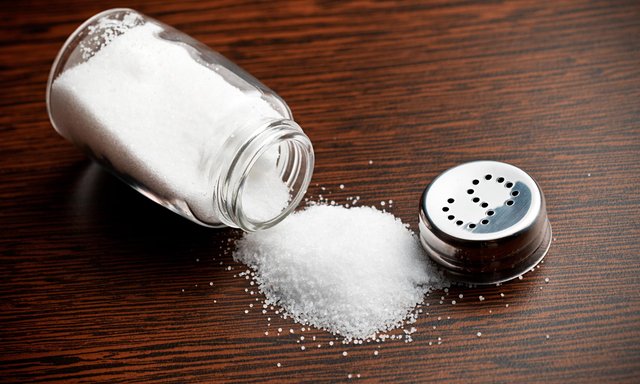Why Is Recommended To Reduce Salt Intake
Hello everybody!
Salt is present in nearly all foods we eat and which has wide application and is used as a spice in food to improve the taste, as a preservative for preventing spoilage of food, for maintaining the color and texture of the product and the like. However, for health care needed her regular and moderate intake in the body.
Excessive intake of salt or sodium from salt and insufficient potassium intake is one of the main culprits of feeling bloated and 'retention' in the abdomen and extremities.

The greatest amount of salt that we consume "hidden" by the food, and that it does not even notice. A large number of consumers already in the preparation of food is added too much salt and therefore awareness of the impact of excessive salt intake on health should be much higher.
Excessive use of salt causes high blood pressure which is associated with the occurrence of heart disease and stroke, and diseases are now the leading causes of death in the world. The excessive salt intake is associated with gastric cancer, renal disease and kidney stones, osteoporosis and edema.
Sodium
Sodium of table salt is an important mineral without it the body can not function. The daily sodium intake for children aged one year is 225 mg, whereas for people older than 18 years need 500 mg minimal, where the proposed value does not include losses due to prolonged sweating.
Salt is a mineral composed of two elements: sodium and chlorine. And although it is more common chlorine, sodium is one that requires attention, because it is strongly associated with the circulation of water in the body, which, in practice, reflected a desire to consume increased amounts of water after savory dishes. In other words, foods that are rich in salt can lead to water retention effect.

The risk of excessive salt intake
educing intake to 5-6 g / day would significantly contribute to the prevention of cardiovascular, renal and other diseases, as well as reducing deaths from heart attacks and strokes. Just education about the benefits of food intake with a small amount of salt and consequently avoiding foods with a lot of salt play a major role in the prevention of various diseases.
Too large intake of salt represents the risk of high blood pressure, heart disease and blood vessels, and also has a detrimental effect on the liver and is associated with the occurrence of inflammatory processes that lead to the destruction of liver cells. Nowadays, a large number of people have fatty liver, the so-called. Nonalcoholic fatty liver disease and one of the main problems is an excessive amount of salt we eat food. Nutrition and the liver are linked in many ways and therefore our diverse and well-balanced meals can help keep the liver healthy.
Added salt foods are not recommended, and preference should be given food that naturally contains no salt and is very low in sodium, such as fruit, vegetables, meat, fish, cereals and the like.
Follow me here for more: https://steemit.com/@fitness-help